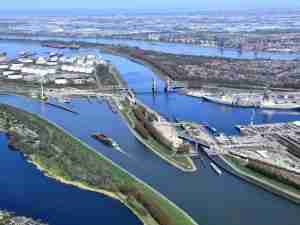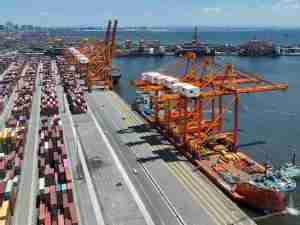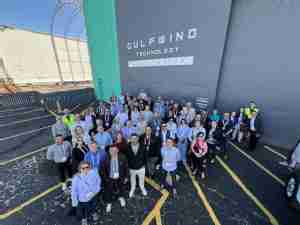Port of Everett Urges the support of freight provisions in Surface Transportation Reauth. Bill
posted by AJOT | Sep 14 2015 at 02:38 PM | Ports & Terminals
State’s seaports need more than $386 million for landside upgrades to reduce congestion, maintain freight mobility, ensure global competitiveness
Everett, Wash. – The Port of Everett supports the American Association of Port Authorities (AAPA) call for U.S. Congress to support critical freight mobility provisions in a major transportation bill that will be deliberated by the U.S. House this fall. AAPA is the unified voice of seaports in the Americas.
The Port of Everett is a strong advocate for a national freight strategy that coordinates landside upgrades with on-terminal improvements to ensure our ports stay competitive in an ever changing global market.
“As a specialty breakbulk port, the types of cargoes we handle vary based on the current economic condition of the U.S.,” Port of Everett CEO Les Reardanz said. “The best way we can prepare for these market shifts is to have adequate infrastructure and a national freight strategy.”
In the AAPA’s 2015 “The State of Freight” report, Washington port leaders identified the need for more than $386 million in landside freight infrastructure investments over the next decade. The report also identified a $28.9 billion need for improvements at ports nationwide, where congestion at landside connectors over the past 10 years was linked to a drop in port productivity of up to 25 percent or more.
“With port activity accounting for more than a quarter of the entire U.S. economy, it’s critical that our seaports have seamless links to other segments of the nation’s freight transportation network,” said AAPA President and CEO Kurt Nagle. “Congress must fully fund landside seaport connections that are required to keep freight moving for American manufacturers, workers, farmers, consumers and communities nationwide.”
The Port of Everett supports AAPA’s “Freight: Keep it Moving” campaign (#FreightKeepItMoving), to activate industry leaders and educate lawmakers about the importance of landside infrastructure at U.S. ports. The Port of Everett is also working on local outreach through its ‘Freight Friday’ campaign (#freightfriday), and its ‘Maritime Monday’ campaign (#maritimemonday), which are aimed at illustrating seaports role in job creation, global competitiveness and a healthy national economy.
The House is expected to act soon on surface transportation legislation. In July, the Senate passed its version of the legislation, the DRIVE Act (H.R. 22), that includes policy provisions and funding for freight transportation projects. AAPA leaders say they are raising awareness about the risks posed by failing to fund programs that benefit port connections such as railways, roads, bridges and tunnels.
According to a recent report by Martin Associates of Lancaster, Pa., U.S. seaport cargo activity in 2014 sustained more than 23 million jobs and generated $321 billion in tax revenue. In addition, the total value of maritime activity related to America’s seaports last year reached $4.6 trillion, or 26 percent of the total U.S. economy, an increase of six percent since 2007. Much of this economic activity was generated by $6 billion worth of goods moving through U.S. seaports on a daily basis – a level of freight mobility threatened by increasing congestion and a lack of federal support for infrastructure. A similar report specific to the Port of Everett by Martin Associates, found that the Port of Everett supports more than 35,000 jobs in the region, and approximately $373 million in state and local tax revenue.
“The ability of U.S. seaports to efficiently move freight is threatened by conditions that severely limit productivity and competitiveness,” Mr. Nagle said. “Fully funded freight provisions in the next surface transportation bill will help us build world-class port connections and maintain a leading role in global trade and domestic job creation.”









